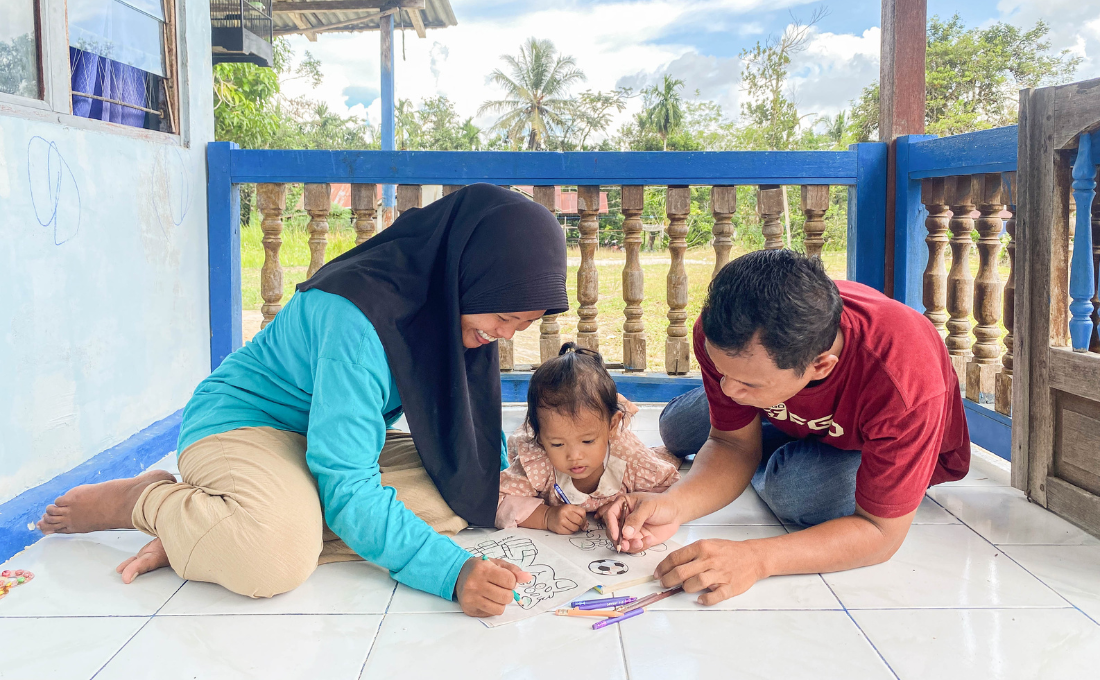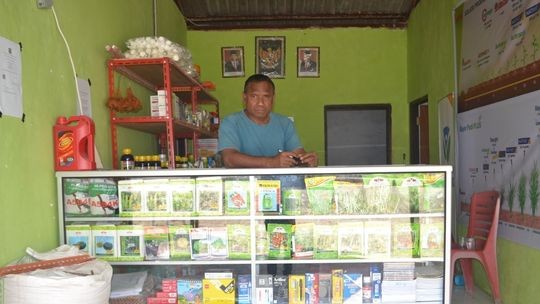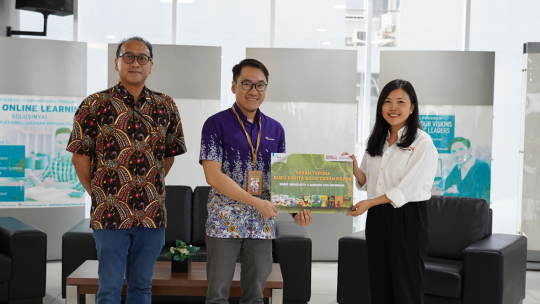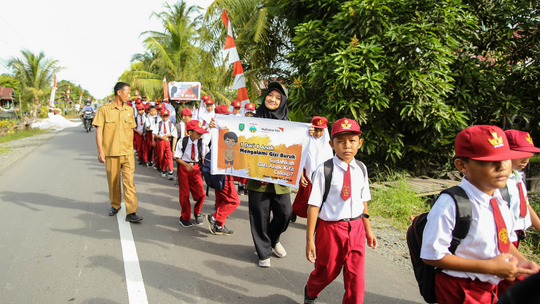Harmony within the Family Brings True Happiness for Children

Raising children goes beyond fulfilling their physical needs; it also involves addressing their psychological well-being. This nurturing should not only begin when children become teenagers but should start as early as infancy, even during pregnancy. A child's psychological needs are met when parents provide care with stable emotions and harmonious communication. In such an environment, parents can shower their children with genuine and maximum love. Fathers and mothers must first build a strong relationship to provide positive parenting. This is especially crucial as parents play the primary role in introducing the concept of a harmonious family to their children.
Harmonious families are a dream for everyone, including mothers in Sintang Regency, West Kalimantan, Indonesia. The journey to building harmonious families is not easy, but it is not impossible.
"When there are problems, my husband and I tend to resolve them emotionally or by staying silent. We would ignore each other for days. I felt sad, sometimes to the point of tears," shared Indri, mother of Daffa. She continued, "My relationship with my child is sometimes close, but we also fight because I still struggle to communicate with him. How do I talk to a four-year-old so that he understands? I often end up being authoritarian, and my child obeys out of fear."
Indri did not envision this daily reality for her family. As a mother and wife, she initiated change within her family by actively participating in the Parent Support Group (PSG) in her village. "After joining PSG, I feel calmer because I can resolve problems effectively without taking days. I am also more patient with my child and have started to understand how to communicate with him," she said.
Parent Support Groups are gatherings of parents who regularly meet to discuss child care practices and family restoration. In these groups, fathers and mothers can exchange knowledge and experiences. For parents, discussions in PSG can serve as therapy, helping them build strong families.
Every mother in Sintang who participates in PSG shares the same hope. One of the other mothers, Nini, expressed, "I am willing to attend and actively participate in these activities because I have the goal of building a harmonious family. Alhamdulillah, after participating in these activities, I have gained knowledge and experience, learned, and received advice."
At home, Nini and her husband were used to rarely communicating or mostly silence. "With my child, I don't understand what he wants or what I should follow," she said. Day after day, Nini faced many tests of patience. She overcame these challenges with the extra patience she found after joining PSG.
Small changes began to happen in her home. "Since I have become more patient, my child has been more receptive to my words. Now, after playing, he cleans up right away and is learning to be more responsible," she shared.
The PSG group in one of the villages in Sintang Regency also serves as a source of information on child development. Toddler mothers also gain insights into proper nutrition and stimulation. For Sulastri, mother of two-year-old Aisyah, PSG has been a source of support when she was unsure of how to raise her toddler.
"I still don't know much about parenting, whether it's about health, food, or the right way to raise a child. I also don't know how to communicate properly with a child who is still in the growth stage. So, I can only do parenting as best as I can and to my knowledge," Sulastri admitted. All she knew was to discipline her child by yelling and scolding her when Aisyah made mistakes. Sulastri also often gave in to her child's demands because she couldn't bear to hear her child cry.
"My child's behavior at that time was rough and temperamental. She would get angry easily and demand things to be fulfilled immediately," she said. PSG introduced Sulastri to a more democratic parenting approach while still staying within the right boundaries. She learned to be more patient and understand her child's perspective. Gradually, Sulastri changed her parenting style, and Aisyah followed suit. Sulastri also communicated this to her husband so that they could agree on the parenting approach to apply for Aisyah.
Now, Sulastri's home is filled with more happiness. Her family can spend quality time together, taking time to accompany their child playing and learning. "Aisyah has become a braver and more confident child now," Sulastri said.
Family after family in Sintang Regency is undergoing a remarkable transformation. The children within these families will be equipped with the necessary tools to thrive and reach their full potential, shielded from all forms of violence. Beyond the changes happening within their homes, these families are also breaking the cycle of inappropriate parenting practices. As a result, the future generation in Sintang Regency has the potential to become parents who nurture their children with love and joy.
Author: Mariana Kurniawati (Communication Executive)




